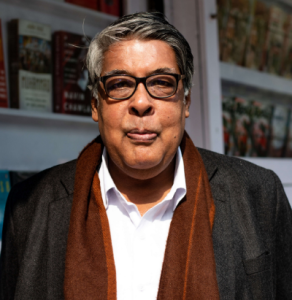Mastering essay writing is crucial for success in the UPSC Civil Services Examination. This guide provides an in-depth overview of essential aspects of the essay paper, including the syllabus, types of essays, potential topics, and key instructions. Additionally, it offers valuable tips on how to write a good essay, common mistakes to avoid, and effective preparation strategies. By understanding and implementing these insights, candidates can enhance their essay-writing skills and improve their performance in the examination.
About Essay Paper
Introduction: The essay paper in the UPSC Civil Services Examination holds significant weightage, evaluating a candidate’s ability to articulate their thoughts coherently and succinctly. This essay aims to provide a comprehensive guide on mastering the art of essay writing for the UPSC examination.
Understanding the Essay Syllabus: The UPSC essay syllabus covers a wide array of topics ranging from socioeconomic issues to political and philosophical musings. Candidates must focus on developing their writing skills and analytical abilities rather than becoming experts in specific subjects.
Types of Essays: Candidates should be familiar with different essay types such as informative, descriptive, narrative, and persuasive essays. Each type has its unique writing style, skill set, and format that candidates must master to score high marks in the exam.
Topics for Essay Writing: The topics for essay writing can encompass national and international importance, relevant social, economic, political, cultural, historical, geographical, and contemporary issues. Candidates should choose familiar topics and express their opinions coherently and structured.
- For the CSE essay examination, candidates are required to compose two essays within a three-hour timeframe, adhering to a word limit of 1000-1200 words for each. Each essay holds a weightage of 125 marks, thus totaling 250 marks for the paper.
- The essay paper consists of two sections, A and B, with each section offering a choice of four essay topics. Candidates must select one essay from each section.
- The guidelines outlined in the syllabus are explicit regarding the expectations from candidates. They are instructed to maintain relevance to the given topic and organize their ideas coherently.
- Furthermore, emphasis is placed on effective expression, as these aspects are pivotal in the evaluation process.
- Understanding and adhering to these key instructions is crucial, as they serve as the precise criteria upon which the essays will be assessed.
How to write a good essay
- When you write body paragraphs, think about them in three ways: supportive, critical, or narrative.
- Start with a narrative paragraph to explain the topic in detail.
- Then, add a supportive paragraph with positive facts or ideas.
- Critical paragraphs work best towards the end, but there’s flexibility.
- The introduction is crucial. It’s like making a good first impression. A well-crafted intro will impress the examiner.
- The conclusion is another chance to score marks.
- Stick closely to the topic. You can deviate a bit, but not too much. Everything should relate to the topic somehow.
- Plan your essay before writing. It should have a clear structure and flow in an orderly way.
- Keep it concise.
- Be clear and brief.
- Avoid using fancy words just for show.
- Write effectively.
- Every sentence should make a strong point.
- Make sure your essay is coherent.
- Check that each sentence makes sense and that paragraphs flow well together.
- Emphasis on the need for interdisciplinary approaches to address societal challenges
- Interconnectedness of various domains of knowledge in a structed way.
Essay Writing Tips:
- Understand the topic thoroughly before starting to write.
- Create an outline to organize thoughts and arguments logically.
- Write in a simple and lucid language.
- Adhere to the word limit set by UPSC.
- Provide examples and factual data to support arguments.
Preparing for the Essay Paper:
- Understand the types of essays that might appear in the exam.
- Stay updated on current affairs and trending topics.
- Focus on improving language skills and creative thinking.
- Allocate fixed time for brainstorming, outlining, and writing.
- Avoid common mistakes like overusing quotes, lack of relevance, and poor time management.
Common Mistakes to Avoid:
- Lack of clarity in language and ideas.
- Overuse of quotes, making the essay less original.
- Poor essay structure without a clear introduction, body, and conclusion.
- Lack of relevance to the question asked.
- Poor time management leading to errors and inadequate proofreading.

 of the Union Public Service Commission (UPSC) provides him with an unparalleled understanding of the examination process, including the evaluation criteria for essays. His insights can help aspirants understand what examiners look for, such as clarity, coherence, originality, and a balanced perspective in essay writing. His familiarity with diverse subjects helps aspirants address topics related to ethics, society, and governance effectively.
of the Union Public Service Commission (UPSC) provides him with an unparalleled understanding of the examination process, including the evaluation criteria for essays. His insights can help aspirants understand what examiners look for, such as clarity, coherence, originality, and a balanced perspective in essay writing. His familiarity with diverse subjects helps aspirants address topics related to ethics, society, and governance effectively.

